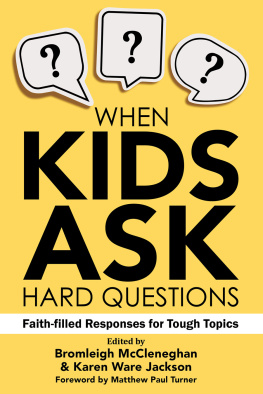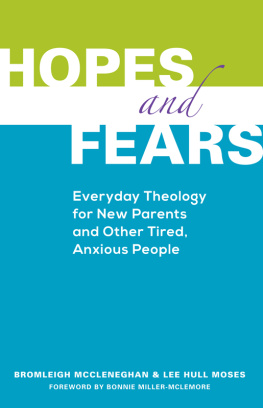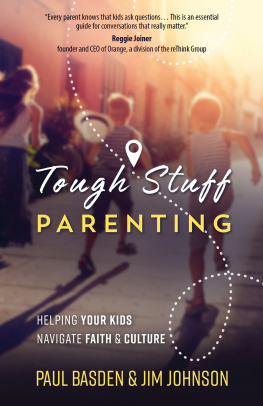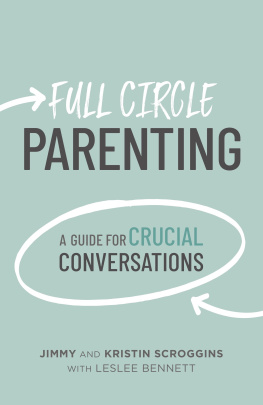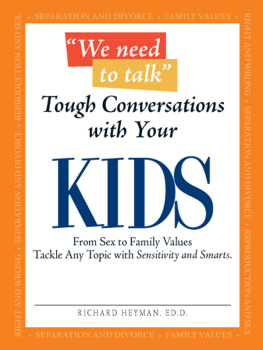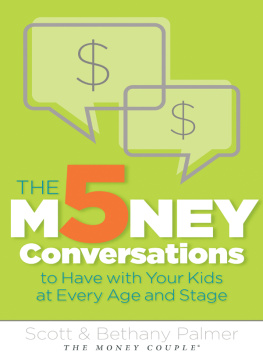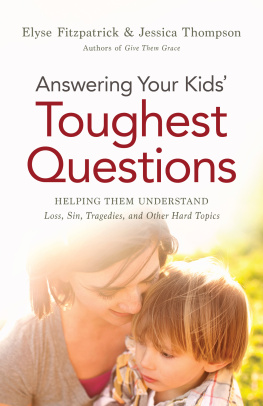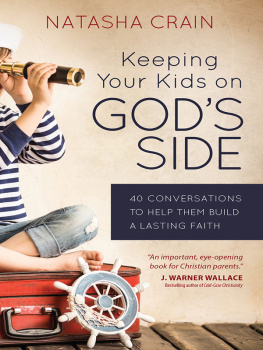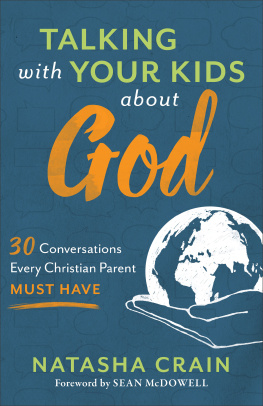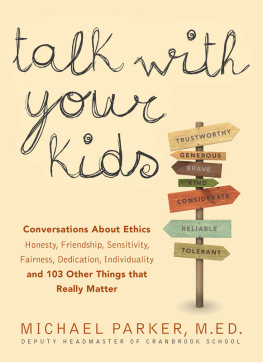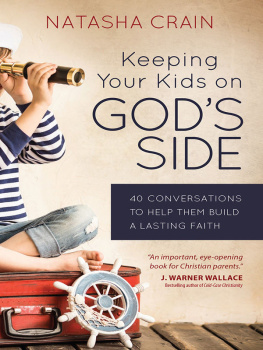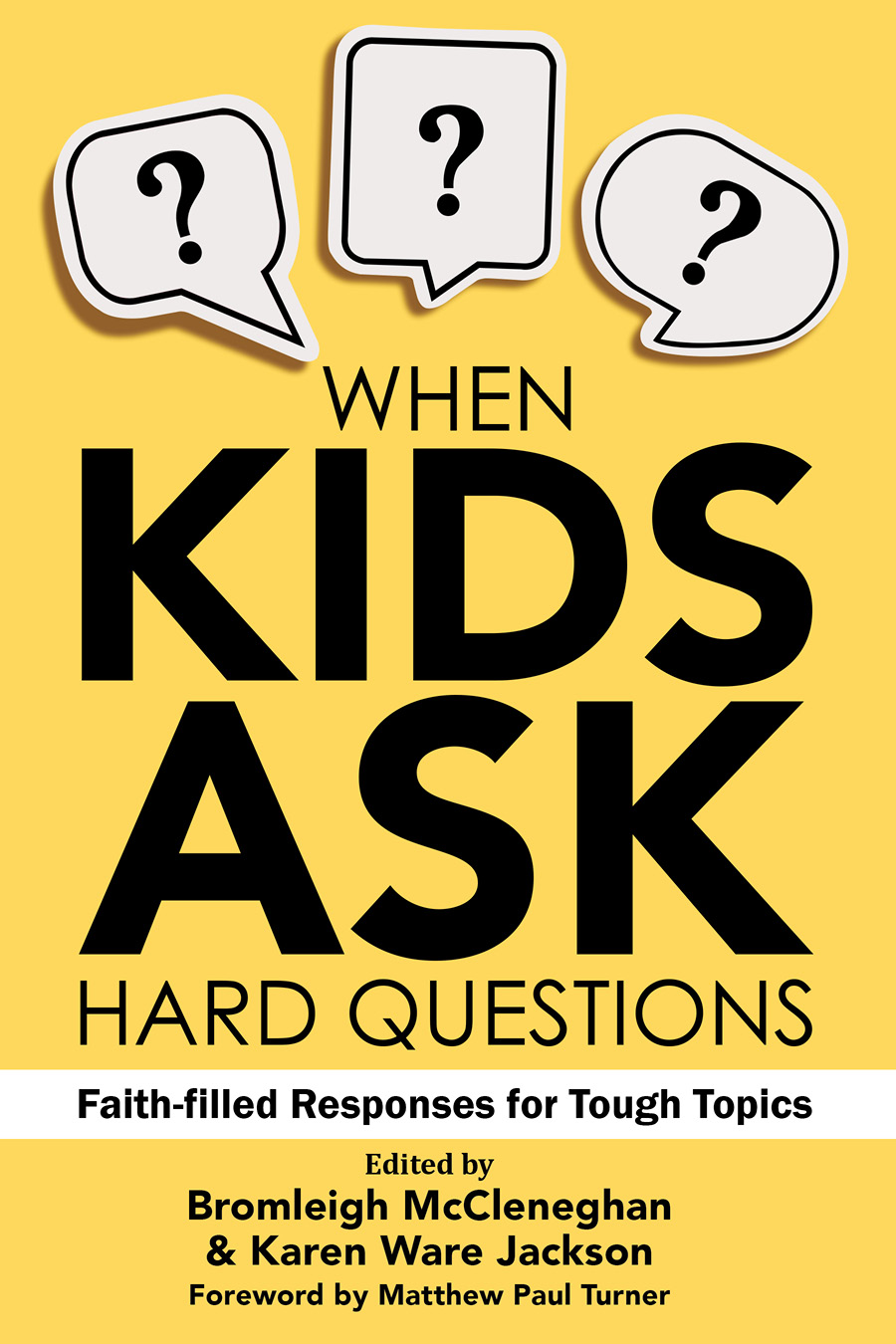Praise for When Kids Ask Hard Questions
Children have big questions. But nobody is answering them. Most religion books have to do with beliefs, ritual, history, and holidays and not with the larger questions about purpose, unfairness, loss, and meaning. This book is different. It is not afraid of questions. With grace, honesty, and wisdom, it helps us engage in the most important conversations we can have with our children.
Sandy Eisenberg Sasso author of Gods Paintbrush, Who is My Neighbor, and The Story of And
As parents, sometimes we know the answers, sometimes we dont, sometimes we just want to convene a council with the wisest spiritual leaders before giving our children the thoughtful answer they deserve to their range of questions. This book is that council; seek and find your responses bolstered by compassion, clarity, and confidence.
Cindy Wang Brandt, author of Parenting Forward: How to Raise Children with Justice, Mercy & Kindness
The why? how? what if? questions children ask often leave us speechless. Parents, grandparents, teachers, pastorspause and read this book now! It will help you with the conversations you can have with children as they learn how to both face difficult questions and live faithfully in Gods world.
Elizabeth Caldwell, Vanderbilt Divinity School
An encyclopedia of progressive and faithful parenting, this is your new go-to for timely wisdom on topics ranging from racism, bullying, grief, money, technology, and more. The wide variety of wise authors all offer profoundly personal entry points, but lead us out into steps that are actionable and practical so we can immediately put what we learn to work.
Molly Baskette, UCC pastor and coauthor of Bless This Mess: A Modern Guide to Faith and Parenting in a Chaotic World
Like having on a nightstand a collection of best friends, trusted advisors, deep thinkers, and folks just doing their best to bring better little humans into the world. There to reach for and flip to what you need when you need it. And to encourage you to get out of your comfort zone to have conversations with the children in your life that need to be had.
Ellen ODonnell, child psychologist and coauthor of Bless This Mess: A Modern Guide to Faith and Parenting in a Chaotic World
Copyright
Copyright 2019 by the authors of each chapter, as noted on contents page and on the first page of each chapter.
All rights reserved. For permission to reuse content, please contact Copyright Clearance Center, 222 Rosewood Drive, Danvers, MA 01923, (978) 750-8400, www.copyright.com .
Bible quotations, unless otherwise noted, are from the New Revised Standard Version Bible, copyright 1989, Division of Christian Education of the National Council of the Churches of Christ in the United States of America. Used by permission. All rights reserved.
Scripture quotations marked (CEV) are taken from the Contemporary English Version . Copyright 1991, 1992, 1995 by American Bible Society. Used by Permission.
Scripture quotations marked (NIV) are taken from the HOLY BIBLE, NEW INTERNATIONAL VERSION. NIV. Copyright 1973, 1978, 1984 by International Bible Society. Used by permission of Zondervan Publishing House. All rights reserved.
Quotations marked Message are from The Message by Eugene H. Peterson, copyright (c) 1993, 1994, 1995, 1996, 2000, 2001, 2002. Used by permission of NavPress Publishing Group. All rights reserved.
Scriptures marked CEB are from the Common English Bible, copyright by Common English Bible. Used with permission. All rights reserved.
The FAITH5 concepts discussed in Crafting a Family Culture of Conversation are copyrighted Faith Inkubators. Used with the permission of Faith Inkubators. All Rights Reserved. www.faithink.org , www.faith5.org .
ChalicePress.com
Print ISBN: 9780827243309
EPUB: 9780827243316
EPDF: 9780827243323
Contents
Who Am I? Reflecting on
Bodies and Souls
Who Are We? Reflecting on
Families and Relationships
Foreword
Matthew Paul Turner
If Ive learned anything about parenting in the 11 years since Jessica and I welcomed our first child, its that kids ask a lot of questions. As toddlers, they ask why? at least 100 times a day. In preschool, our childrens questions begin to morph into (almost) complete sentencesdo I have to take a nap? or I watch Netflix? Once they start reading and begin learning new ideas and stories on their own, many of their questions have less to do with their curiosity and more about trying to stump us with all that theyre learningDo you know how many rooms are in the White House? or Do you know who first discovered gravity?
So much of our kids lives revolve around asking us questions.
And in the beginning, while we might not know the answers to all of their inquiries or possess the patience to even listen to every single one with our fullest attention, were rarely afraid of what theyre going to ask. Thats because most of the questions they ask are usually joyous and innocent, small curiosities from tiny humans discovering new things that they want to comprehend. Even when their questions stump us, we can find delight in joining them on their search for the answers (thank you, Google!).
But at some point, as they grow and become more and more aware of the world around them, their list of questions begin to include the occasional inquiry that catches us off guard, the kind of question that stops us in our tracks. They start asking us about race or gender. Or they ask us about poverty or about death. Sometimes they ask us really hard questions about God.
Ill never forget when my then seven-year-old asked me if the coat she was wearing made her look fat. Though I knew that ideas regarding body image often became topics of conversation among girls during grade school, I was still taken aback by the question at first. Thankfully, I had the wherewithal to take a deep breath and craft an answer for her that was body-positive and without shame, knowing that my little girl was listening to my every word. Another moment I remember was when my then eight-year-old son asked me what the word suicide meant. As I began to answer, I prayed for grace, and offered him the best, most truthful response I could muster on the fly.
But those moments have taught me that I need to be a proactive parent, one who is anticipating the hard questions, one who has considered what my answers will be, one who uses every difficult question as an opportunity to teach and inform and develop a relationship with my kids that is safe, without fear, and open. Our oldest kid just turned 11, which means his questions are now beginning to evolve and mature as his growing brain begins to take in all that he sees and hears and experiences. On one level, its exciting. But Id be lying if I didnt admit that I am also a little scared. Oh Im not scared of the questions hes going to ask or the topics he might be curious to learn about; Im fearful of how my answers might affect him: Will I say enough? Should I say more? Am I overthinking all of this?
As every one of us whos raising kids learns very quickly, parenting is no joke. And thats why I believe its incredibly important to parent proactively. Jessica and I are constantly reading books and articles and sharing with each other resources that offer advice and wisdom on how to engage our kids questions with hopeful, informed answers. Our hope is that our kids will grow up to be adults who are kind and generous and use their God-given talents to bring love and light into the world. But we also want them to be culturally informed, fully aware of their privilege, and not overwhelmed by fear. We want them to know about the challenges we as a culture faceracial and gender equality, gun violence, LGBTQ+ rights, and how to live peacefully among those with whom we have differences.

